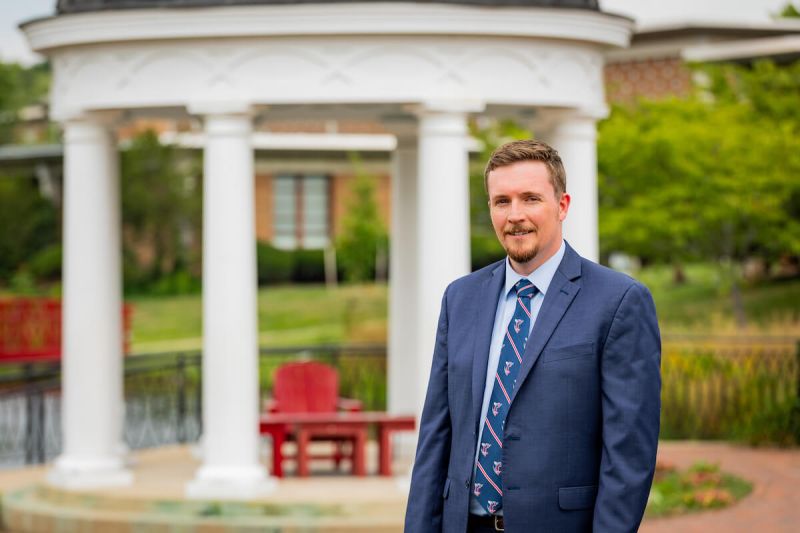Share this Story
Higher Education in the Age of AI: Embracing Opportunities and Ensuring Integrity
Full Disclosure: This Article was Written Using Artificial Intelligence*
University News | August 18, 2023
Today, Virginia Wesleyan University's campus buzzed with anticipation and intellectual energy as Dr. Devon Taylor from Shenandoah University provided provided a deep dive into the transformative world of artificial intelligence in higher education. From its fundamental concepts to the profound impact on academia, Dr. Taylor – speaking at a pre-session faculty workshop – offered a comprehensive perspective, with a special emphasis on maintaining the authenticity of student work in an AI-driven age. 
Laying the AI Foundation
Dr. Taylor began by outlining the meteoric evolution of AI, detailing algorithms designed to handle tasks traditionally requiring human intellect. He spotlighted the rapid strides models like ChatGPT and GPT-4 have made, reaching millions of users in record times.
The Vast Capabilities of AI
Highlighting the multi-dimensional applications of AI, Dr. Taylor shed light on its versatility, from content generation, coding, translation, and data analytics to customer support. He further illuminated the "Art of the Possible," underscoring how AI can be harnessed for innovative endeavors across various sectors.
The Need for AI-Resistant Assessments
As AI tools become increasingly accessible, the traditional pillars of education, especially evaluation and assessment, face challenges. How can educators ensure that what they grade genuinely reflects a student's effort and understanding and isn't just sophisticated AI output?
Dr. Taylor proposed several proactive measures:
- Library Databases: A strong recommendation to utilize sources exclusive to institutional subscriptions, ensuring content isn't generic or AI-generated.
- Personalized Assignments: Questions tailored to individual student contexts, such as "discuss the relevance of this idea to your own situation," can elicit genuine responses.
- Staged Submissions: This method, progressing from outlines to research notes, drafts, and the final piece, ensures a comprehensive evaluation of students' work at every step.
- Iterative Reviewing: Peer reviews can establish a culture of ongoing feedback, making the quick fixes offered by AI tools less attractive.
Diversifying Assessments for Authenticity
Dr. Taylor passionately discussed the potential of alternative assessment methods:
- Multimedia Assignments: Encouraging students to develop oral presentations, videos, or even YouTube content can foster originality.
- Personal Reflections: Assignments rooted in personal experiences, almost impossible for AI to replicate.
- Interactive Assessments: Real-time evaluations like live interviews ensure direct evaluation of student comprehension.
- Promoting Social Learning: Collaborative projects can foster genuine understanding, reducing the temptation to rely on AI.
Incorporating AI advancements into academia's fabric brings challenges, but as Dr. Taylor’s insightful session at Virginia Wesleyan University showcased, it's an exciting era of opportunity. The key lies in harnessing AI's potential while preserving the authenticity and integrity of the educational journey.
*This was written by copying and pasting Dr. Taylor's presentation into ChatGPT and providing some basic instructions on how to write the article.


